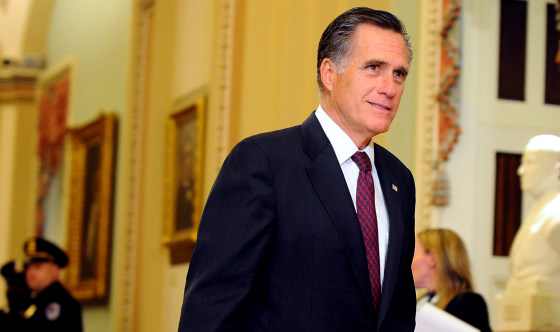Ahead of the vote expected on Friday afternoon on whether to call witnesses at President Donald Trump's impeachment trial, GOP Senate leaders believe they will have just enough votes to block additional testimony and documents.
"I think we can all agree this is a big day," said Senate Majority Leader Mitch McConnell, R-Ky.
For witness testimony to be approved, four Republican senators would need to vote alongside all Democrats. Republicans have a 53-seat majority in the 100-member Senate.
In another possible scenario, three GOP lawmakers vote for witnesses, making it a 50-50 tie — under which the resolution would be defeated. But Supreme Court Chief Justice John Roberts, who is presiding over the trial, could weigh in as a 101st vote, although that's not anticipated.
By early Friday afternoon, it appeared doubtful Democrats would be able to reach the 50 vote threshold.
So far, only Susan Collins, R-Maine, has said she would to hear from witnesses. Mitt Romney, R-Utah, has said he wants to hear from John Bolton, and two of his aides confirmed to NBC News he will, as expected, vote to call witnesses. But Lisa Murkowski, R-Alaska, who'd hinted at an interest in hearing from witnesses, said she would vote no because she considered the House's articles of impeachment to be "rushed and flawed."
Lamar Alexander, R-Tennessee, had been one senator Democrats had hoped they could sway, but in a statement Thursday night he suggested that while the House managers had already proven their case, the misconduct didn't rise to the level needed to remove a president.
"It was inappropriate for the president to ask a foreign leader to investigate his political opponent and to withhold United States aid to encourage that investigation," Alexander said.
"When elected officials inappropriately interfere with such investigations, it undermines the principle of equal justice under the law. But the Constitution does not give the Senate the power to remove the president from office and ban him from this year's ballot simply for actions that are inappropriate."
Full coverage of President Donald Trump's impeachment trial
Other Republicans who were Democratic targets have recently said they will not be voting with the Democrats. They include Cory Gardner of Colorado, Pat Roberts of Kansas and Steve Daines of Montana. Pat Toomey of Pennsylvania told Fox News on Thursday he will not vote for witnesses, and Jerry Moran of Kansas also came out against witnesses.
Other Democrats looked to Rob Portman of Ohio, a Trump ally but also the founder of the Senate's Ukraine Caucus and one of the lawmakers who pushed the president to release the frozen military aid to the country. Portman said Friday he thought some of Trump's actions were "wrong and inappropriate. But I do not believe that the president’s actions rise to the level of removing a duly-elected president from office and taking him off the ballot in the middle of an election."
That leaves the Democrats' hopes pinned on a last minute change of heart or the emergence of an unexpected Republican senator to get to the 51 votes needed for additional testimony.
In the event of a 50-50 tie, the vote is expected to fail, Roberts is highly unlikely to weigh in.
Speaking on "Fox & Friends" on Thursday, Sen. Mike Braun, R-Ind., said a tie vote would be "tricky," adding that's "because there's a question of how much sway the presiding officer would have over that dynamic."
Braun said Roberts "could" decide to break the tie.
"And then, if 51 senators don't like the decision, you could overrule the presiding officer," he said. "So we are getting into some territory that's probably uncharted here."
In the statement announcing her opposition to witnesses, Murkowski said it's "become clear some of my colleagues intend to further politicize this process, and drag the Supreme Court into the fray, while attacking the Chief Justice. I will not stand for nor support that effort. We have already degraded this institution for partisan political benefit, and I will not enable those who wish to pull down another."
Democrats have demanded that the Senate call a series of witnesses, including Trump's former national security adviser John Bolton and his acting chief of staff, Mick Mulvaney. This week, The New York Times reported that, according to a manuscript of Bolton's coming book, Bolton alleges that Trump directly linked Ukrainian aid and the investigations of Democrats he was seeking in an August conversation. Trump has denied having such a discussion.
NBC News has not seen the manuscript or verified the claim.
Download the NBC News app for full coverage of the Senate impeachment trial
Should witnesses be approved, Republicans have pledged to call for testimony from people like former Vice President Joe Biden's son Hunter Biden and the whistleblower whose complaint triggered the impeachment proceedings, among others.
Every impeachment trial in history has had witness testimony. Twenty-six witnesses testified in the 2010 trial of Judge Thomas Porteous, the most recent impeachment trial, including 17 who did not testify before the House.



